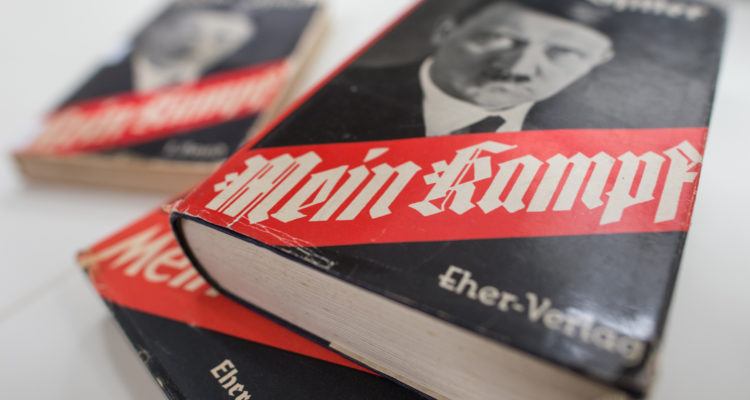The Arabic translation of Hitler’s Mein Kampf has become the sixth best selling book in the Palestinian Authority territories.
By World Israeli News Staff
A social activist noticed an Arabic translation of Adolf Hitler’s Mein Kampf for sale while passing by the window of a bookstore in the northern Arab-Israeli town of Reineh, reports the Israeli news site Mako.
Amit Barak alerted the owner of the bookstore and contacted Betzalmo, an Israeli Human Rights NGO, about the discovery
The owner immediately removed the book and apologized for what happened. He claimed that the book was bought by accident, and that it was put up for sale by his son without his knowledge, according to the report.
Barak posted a picture of the book on his social media account and related to his followers what he told the owner.
“I told him that he had 24 hours to remove the books from the store, and he told me in response that it would take him exactly 24 seconds… and it did,” Barak said.
Mein Kampf has been banned for distribution in many countries under various laws in order to prohibit the distribution of racist propaganda material. Although its original copyright expired about three years ago, almost every new translation or dissemination of Hitler’s hate manifesto provokes public protest.
According to The Telegraph, the Arabic translation of Hitler’s Mein Kampf has become the sixth best-selling book in the Palestinian Authority.
Hitler wrote Mein Kampf as a political tract while imprisoned for the failed 1923 Beer House Putsch in Munich, in which he led an attempt to overthrow the government. The book’s sales were meant to defray the costs of his treason trial.
The book outlined his visions for a new Germany, including the end of the democratic system, the conquering of lands to the east, the persecution of Jews and Communists, and the killing of the sick and the weak.
During Hitler’s rule, three editions of the book were published: a standard edition; an edition given by certain cities as a gift to marrying couples, and an edition to be sent with soldiers to the front.
The book made Hitler a rich man. It sold eight million copies by the time of the dictator’s death in 1945, earning $1 million a year in royalties. The money paid for the purchase and expansion of his retreat in the Bavarian Alps near Berchtesgaden.






